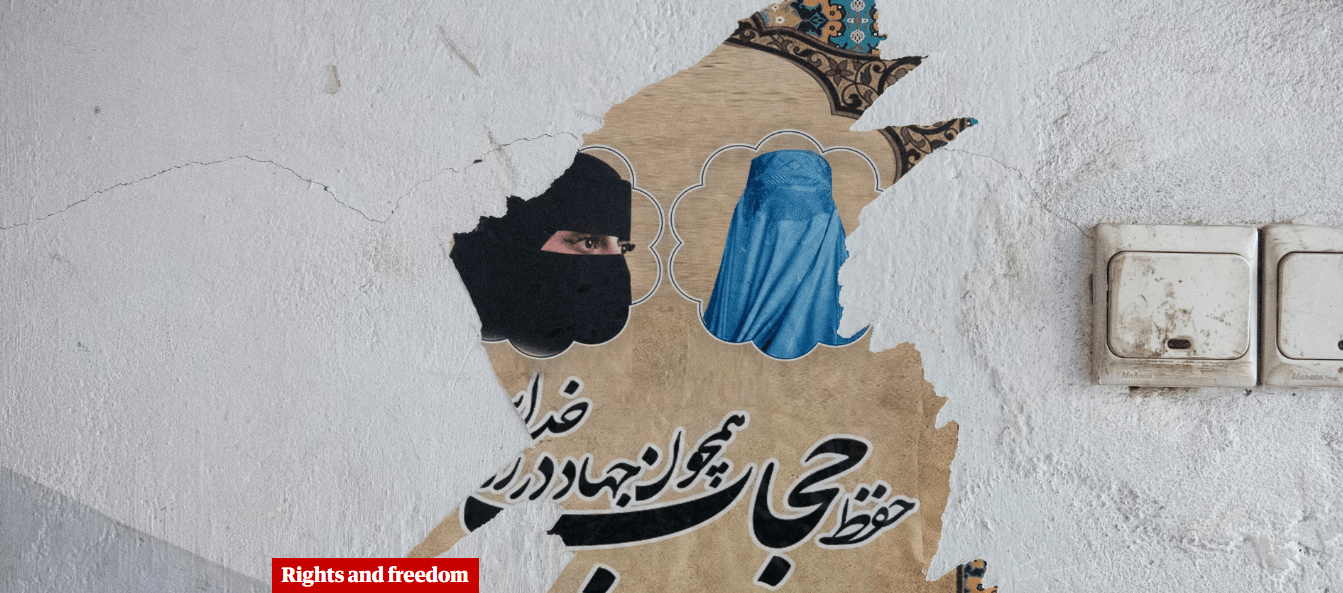
Earlier this year, I spent 10 weeks travelling with the photographer Kiana Hayeri across seven provinces of Afghanistan, speaking to more than 100 Afghan women and girls about how their lives had changed since the Taliban swept back to power three years ago.
Hayeri and I both lived in Afghanistan for years, and remained here after the Taliban took control in August 2021. In the past few years, we have seen women’s rights and freedoms, already severely curtailed, swept away as Taliban edicts have fallen like hammer blows.
In just over three years, Afghan women have been banned from nearly every aspect of public life: schools, universities, most workplaces – even parks and bathhouses. From Kandahar, the birthplace and political headquarters of the Taliban, the group’s leaders have dictated that women must cover their faces in public, always be accompanied by a man and never let their voices be heard in public.
As foreign women, we still carried the rare privilege of freedom of movement (although I doubt we could now travel as we did at the beginning of this year), which has nearly disappeared for the 14 million Afghan women and girls across the country. Meeting women while ensuring their security was a daily challenge.
Each province we travelled to revealed different shades of oppression. In some areas – in the south and east in particular – women were already living under very restricted conditions before the Taliban’s official return, with many saying that now, at least, there was no more violence. In other places, the sudden loss of freedom has been devastating.
For many, the Taliban’s refusal to allow girls to attend secondary education has been the hardest blow.
We met Gulsom, 17, who survived a suicide attack on her school just a few months before the Taliban came back into power. Severely wounded and left unable to walk, she must now use a wheelchair and had to continue her studies at an underground school.
But Gulsom insisted: “My will to study and work hard has increased.”
Yet her younger sister, who is 14, seems to have lost hope. She has left the house only a few times in more than two years.
Gulsom said: “[In 2021] she went to school on the day they were supposed to open, but she returned crying. [The Taliban] fired [shots] to disperse the girls, as they were asking when will the schools would open. She said the Taliban beat two girls and warned them not to leave their homes.”
Since then, she has sunk into a deep depression. Gulsom said: “She always asks me, ‘What is the use of studying this much? At the end you will die. I don’t work hard, I will die; and you work hard, you will die too. I want to die in peace.’”
We spoke to many girls who no longer see the value of trying to continue their education at home when they cannot graduate from school, cannot work and cannot imagine a future for themselves.
For some of the young women we met, being barred from school now means they have to try to find a job or get married, like the young women in one province who spend their days sewing school uniforms for the young girls still allowed into the primary classroom.






